Are You Suffering From 15 Strangest Conditions of the Human Mind
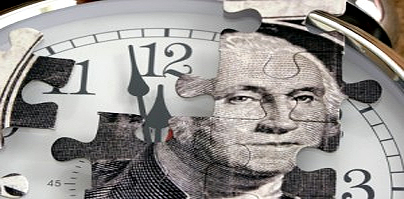
The human mind is a tremendous thing – there are so many facts revealed about it, and so many things which still remain an enigma for us. Science is struggling to explain such strange developments, but still unable to describe their actual origins. Although majority of us are already familiar of a few mental conditions on this list, several others are very strange, unfamiliar and beyond the boundary of logical domain. Checkout if you have any of the following strangest mental conditions. Here is a collection of top 15 strangest conditions of the Human Mind.
1- Prosopagnosia
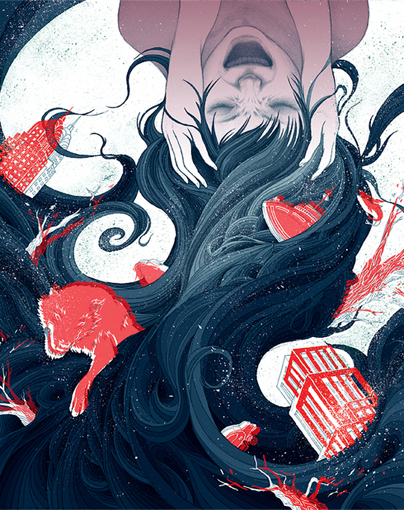
Prosopagnosia is a mental condition in which a person is ineffective to distinguish faces of people or objects that they should know. People going through this disorder are typically capable of using their other senses to recognize people – for instance a person’s perfume, the shape or style of their hair, the sound of their voice, or even their gait. A famous case of this phenomena was mentioned in the 1998 book (and later Opera by Michael Nyman) called “The man who mistook his wife for a hat”.
2- Fregoli Delusion
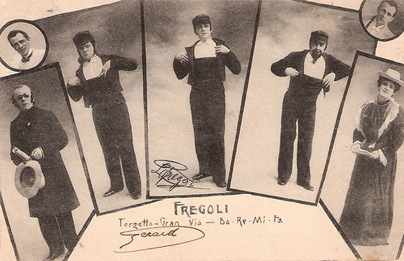
Fregoli delusion is an uncommon mental condition in which a person holds the impression that different people are, in fact, the same person in an assortment of disguises. It is frequently related to paranoia and the impression that the person in disguise is attempting to persecute them. The delusion is named after the famous Italian actor Leopoldo Fregoli who was renowned for his skill to make quick changes of appearance during his stage act. It was first accounted in 1927 in the case study of a 27-year-old woman who thought she was being persecuted by two actors whom she often went to see at the theatre. She reported that these people “pursued her closely, taking the form of people she knows or meets”.
3- Capgras Delusion
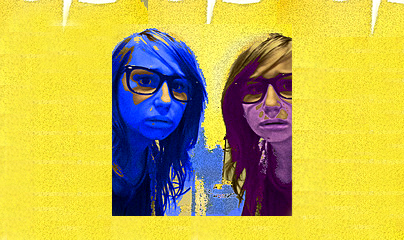
Capgras delusion is a mental condition in which a person believes that a close friend or family member has been replaced by an identical looking faker. This could be associated with the old belief that babies were slipped and replaced by changelings in medieval folklore, and the modern idea of aliens seizing the bodies of people on earth to live amongst us for reasons unknown. This delusion is frequent among those who are schizophrenic; however it can also occur in other disorders.
4- Nihilistic delusion
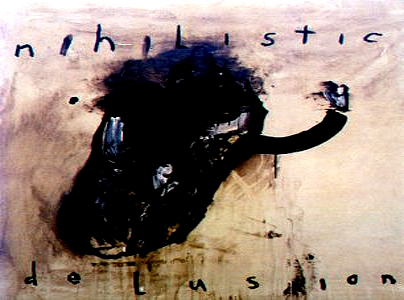
Nihilistic delusion is a condition whose theme centers on the nonexistence of self or parts of self, others, or the world. A person with this type of delusion may have the false hallucination that the world is ending.
5- Erotomania

Erotomania is a mental condition in which a person starts to think that another person, usually someone of higher status, is in love with him or her. It is, however, rare for people with this type of delusion to try to contact the other person (through phone calls, letters, emails, gifts, and sometimes stalking).
6- L’esprit de l’Escalier
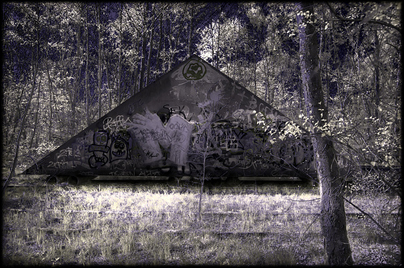
L’esprit de l’escalier (French= stairway wit) is the sensation of thinking of an ingenious counter when its too late. The phrase can be used to portray a comeback to an insult, or any witty, quick remark that comes to mind too late to be helpful—when one is on the “staircase” leaving behind. The German word “treppenwitz” stands for the same condition. In English, the phrasal idiom describes this condition as “being wise after the event”. This condition frequently comes with a feeling of regret at having not thought of the riposte when it was most required or appropriate.
7- Grandiose delusion
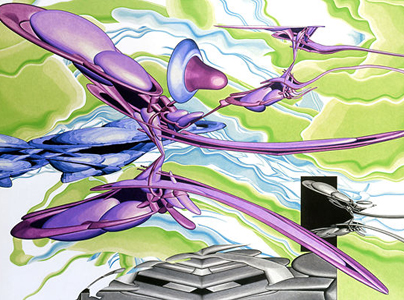
In this type of delusion, a person overdraws his / her sense of self-importance and believes that he or she has special powers, talents, or outstanding skills. At times, the subject would believe that he/ she is a celebrity (for example, a rock star or Jesus Christ). Normally a person with this delusion is convinced he/ she has achieved some great accomplishment for which they have not received enough credit or recognition.
8- Presque Vu (Almost Seen)
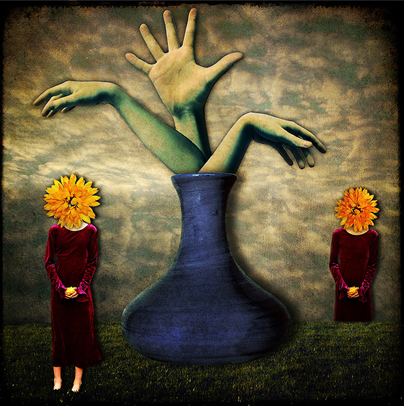
Presque vu is almost similar to the “tip of the tongue” feeling – it is the strong sensation that you are about to go through an epiphany – though the epiphany rarely happens. The condition of presque vu can be very disorienting, perturbing and distracting.
9- Jamais Vu (Never Seen)

Jamais vu stands for a familiar situation which is not recognized. It is often regarded the opposite of déjà vu and it comprises a sense of eeriness. The observer does not distinguish the situation despite knowing logically that they have been there before. It is usually described as when a person shortly doesn’t recognize a person, word, or place that they actually know. Chris Moulin, a researcher at Leeds University, inquired 92 volunteers to write up “door” 30 times in 60 seconds. He accounted that 68%of his guinea pigs showed symptoms of jamais vu, such as starting to doubt that “door” was a real word. This makes clear that jamais vu might be an indication to brain fatigue.
10- Déjà Senti (Already Felt)

Déjà senti is the mental process of having “already felt” something. This is totally a mental phenomenon and rarely remains in your memory subsequently. A person diagnosed with Déjà Senti has accounted that “What is occupying the attention is what has occupied it before, and indeed has been familiar, but has been forgotten for a time, and now is recovered with a slight sense of satisfaction as if it had been sought for. The recollection is always started by another person’s voice, or by my own verbalized thought, or by what I am reading and mentally verbalize; and I think that during the abnormal state I generally verbalize some such phrase of simple recognition as ‘Oh yes—I see’, ‘Of course—I remember’, etc., but a minute or two later I can recollect neither the words nor the verbalized thought which gave rise to the recollection. I only find strongly that they resemble what I have felt before under similar abnormal conditions.”
You may consider it as the sensation of having just mouthed, but acknowledging that you, actually, didn’t utter a single word.
11- Déjà Visité (Already Visited)

Déjà visité is a rare mental phenomenon and it exemplifies a preternatural knowledge of a new place. For instance, you may have a go at it your way around a totally new town or a place you may have never been before, and knowing that it is not possible for you to have this knowledge. Déjà visité is related to spacial and geographical relationships, while déjà vécu is related to temporal happenings. Nathaniel Hawthorne reported about an experience of this condition in his book “Our Old Home” in which he visited a ruined castle and had eerily known everything about its layout. Later on, he was able to trace the experience to a poem he had read many years early by Alexander Pope in which the castle was precisely described.
12- Déjà Entendu (Already heard)

Déjà Entendu is a sensation in which sounds or voices have been heard in the past.
13- Déjà Vécu (Already lived through or experienced)

Déjà vécu is what most individuals are actually going through when they think they are experiencing deja vu. Déjà vu is the feeling of having seen something before, whereas déjà vécu is the sensation of having seen an event before, but in great detail – such as recognizing smells and sounds. This is also typically accompanied by a very strong feeling of recognizing what’s gonna come next. In my own experience, I have not only recognized what was going to come next, but have been able to tell those around me what’s gonna come next – and I was 100% correct. Well, this is a very strange and unaccountable feeling…
14- Déjà Voulu (Already Wanted)

Déjà Voulu is a sensation of disturbance of memory in which an individual believes that his or her present desires are incisively the same as desires held some time earlier.
15- Déjà Vu (Already Seen)
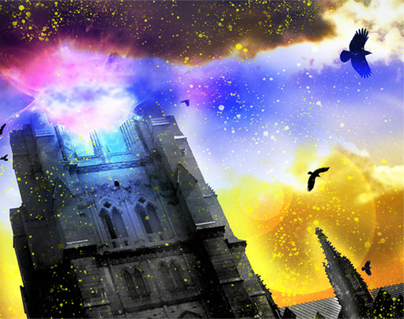
Déjà vu is the experience of being sure that you have experienced or seen a new situation before – you experience as though the event has already occurred or is repeating itself. This condition is typically accompanied by a strong sense of familiarity and a sense of strangeness, eeriness, or bizarreness. The “previous” feeling is generally assigned to a dream, but from time to time there is a very sure sense that it has really happened in the past.
















May 14th, 2009 at 10:30 pm
Great post! Very interesting and well written. Its strange that I’ve experienced just a couple of such conditions before for which I’m glad. Thanks for sharing it with us.
May 15th, 2009 at 7:17 pm
I really enjoyed the Brand New Album art for Deja Entendu… Great band…
May 15th, 2009 at 8:14 pm
Wow. Incredible article, enjoyed most of these strange situations.
May 15th, 2009 at 10:54 pm
I loved this! I have experienced some of these too. Its weird but very interesting. I enjoy it!
May 16th, 2009 at 6:14 pm
[...] more strange conditions of the human mind in Mind Cafe, 14 May 2009] Posted by ambigramite Filed in Uncategorized No Comments [...]
May 18th, 2009 at 6:51 am
[...] Strangest Mental Conditions Jump to Comments From a cool blog called Mental Floss: The 15 strangest mental conditions. [...]
May 20th, 2009 at 7:46 am
wow, talk about redundant– if you had just made #10 deja vu, you could have left off 11-15…
May 24th, 2009 at 1:06 pm
[...] Top 15 Strangest Conditions of the Human Mind [...]
May 26th, 2009 at 9:05 pm
[...] we make a decision that we like someone, it is a mental process that we cannot rather articulate. It’s not a mystery that we make decisions with regard to our [...]
May 27th, 2009 at 6:08 am
[...] Top 15 Strangest Conditions of the Human Mind | MindCafe.org (tags: Medics neuroscience) [...]
May 27th, 2009 at 7:38 pm
Lisa J: It’s not redundant at all. What you fail to realize is that deja vu is a completely separate experience than all the others. Obviously, there are specific descriptions and names for each experience and they may illicit similar feelings, but they are, in fact, very different.
Most of the time, people don’t realize there is a difference and just call everything pertaining to those feelings deja vu. This post clarified all the different kinds.
Poster: Thanks for the very informative and great article! I have, also, experienced some of these (mainly in numbers 9-15, but also number 6) and I am glad I am able to put a name to them and pinpoint them better.
May 27th, 2009 at 9:41 pm
A great article, interesting and all!
May 27th, 2009 at 11:56 pm
Cool! I definitely have stairway wittiness. Nice to know there is a name for it!
May 28th, 2009 at 12:16 am
Those are some great examples of the mysteries of the mind. However, you missed some of the most profound:
1) Alien hand syndrome: The patient believes that one of his arms (most commonly the left) is moving without his control. This is not a psychological disorder but a result of brain damage (most commonly seen in a surgical lesion of the corpus callosum)
2) attention disorder: the patient does not “attend” to one side of his or her body (almost always the left). This means that the patient does not see the left side of the world. He or she is not aware of the illness. In fact, if you ask the patient to recollect a memory from before the onset of the disorder, he or she will not describe the left side of the memory…as if they can no longer understand the concept of the left side. This is not a problem with their eyes, or even the visual part of the brain. Instead this is a problem with the part of the brain that pays attention to the left part of the world It is not psychological. It is most often a result of a stroke in the right parietal lobe of the brain
3) anterograde amnesia: This disorder was exhibited in the movie Memento. The patient cannot store short term memories as long term memories. He or she can often remember everything up to the point of the brain damage, but can’t make new long term memories. However, the damage most likely doesn’t effect the procedural memory. So they can learn how to do many new things, and they will learn them well…but they won’t remember learning them. This includes complex dance moves or even sophisticated probability games that would seem to rely on the memory. This can come about as a result of many different lesions involving the hypothalmus or temporal lobe
4) disinhibition: This is characterized by the patient no longer being able to appropriately make long term cost-benefit analysis. In other words, they can no longer make wise decisions. They often can explain hypothetically what a wise decision is, and why one should make them, but they are unable to do it themselves. If given a choice between a small reward immediately or a large reward later, they will almost always choose the immediate reward. Again, this is not a psychological problem. This is caused by a lesion in the orbitofrontal region of the prefrontal lobe of the brain. This region has been closely linked to addiction.
May 28th, 2009 at 12:59 am
Don’t forget synthaesia–the mind mixes up senses. For example, those with the condition often note colors having a sound or numbers emitting particular odors.
May 28th, 2009 at 2:26 am
[...] [From Top 15 Strangest Conditions of the Human Mind | MindCafe.org] [...]
May 28th, 2009 at 5:55 am
Damn those French for coming up with all these terms before anyone else did!
May 28th, 2009 at 7:24 am
the quiet things that no one ever knows
May 28th, 2009 at 10:53 am
[...] Fuente en ingles. [...]
June 14th, 2009 at 12:10 am
The article is usefull for me. I’ll be coming back to your blog.
June 15th, 2009 at 8:29 pm
Interesting. Half of the conditions I can’t even pronounce. The only ones I have heard of is Grandiose Delusion, and Deja Vu.
August 5th, 2009 at 12:10 pm
this is interesting! I really enjoyed browsing your posts, thanks for sharing…keep it up!
September 15th, 2009 at 8:37 am
awesome post!! Top 15 Strangest Conditions of the Human Mind
December 28th, 2009 at 10:59 pm
[...] * Fregoli Delusion is the name of an odd mental condition where a patient thinks that different people are actually the same person wearing a variety of disguises. Presque vu is the sensation that you’re about to have an amazing epiphany, although it never actually happens. Find out more about these and other strange conditions of the human mind. - Mind Cafe [...]
February 10th, 2010 at 1:09 pm
[...] of any story they’re asked to recall. And wouldn’t you do the same? Given the difficulty of telling a solid lie (noted several times thus far), it is much easier to keep it simple until further request. So give [...]
May 30th, 2010 at 8:49 pm
…
Thanks! it’s helpful to me. I find it is the suitable Mens wool beanie info!…